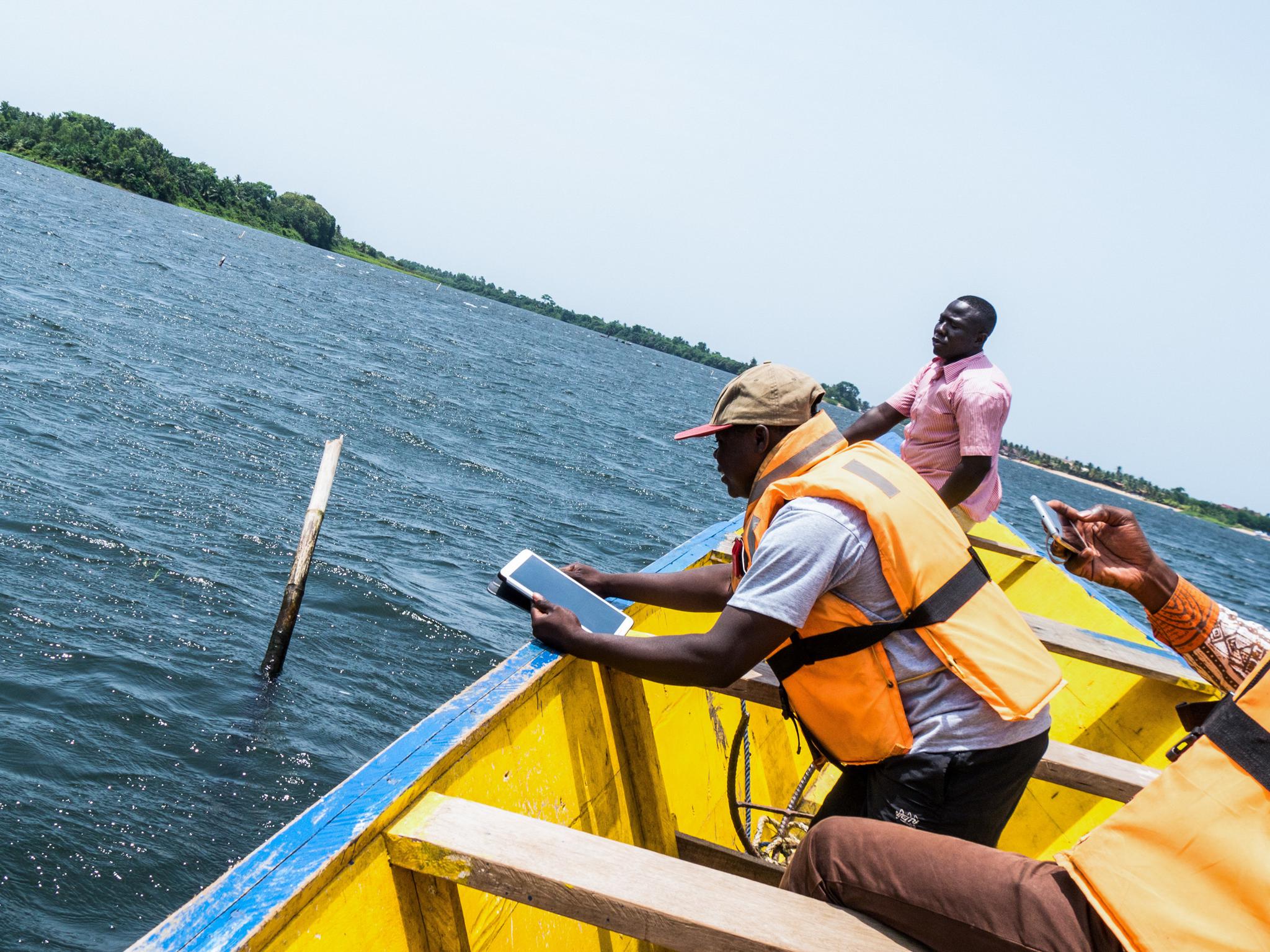Why Ghana's Clam Farmers Are Digging GPS

Samuel-Richard Bogobley is wearing a bright orange life vest and leaning precariously over the edge of a fishing canoe on the Volta River estuary, a gorgeous wildlife refuge where Ghana's biggest river meets the Gulf of Guinea.
He's looking for a bamboo rod poking a couple feet above the surface. When he finds it, he holds out a computer tablet and taps the screen. Then he motions for the captain to move the boat forward as he scans the water for the next rod.
It's slow work. But once it's completed, it could pave the way for significant new legal protections for the property rights of marginalized communities across Africa.
"Before you can start to recognize a fishery, you need to have a lot of data," says Bogobley, a researcher with
You’re reading a preview, subscribe to read more.
Start your free 30 days





